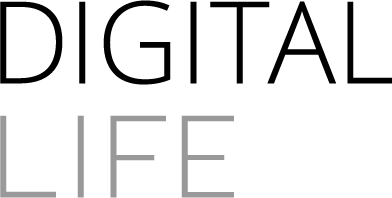

Digital Life is a research group at the Amsterdam University of Applied Sciences. Our applied research is focused on empowering the lives of people, especially in the health and wellbeing domain via data-driven systems and digital technologies. Our research topics embrace the challenges in the design and evaluation of human-computer interaction and user-experience research of innovative technologies.
Projects
Publications
Robot Social Skills: Influencing Children’s Performance and Robot Perception Through a Robot Math Tutor’s Scaffolding and Personalization
(2026 )Simone de Droog, Mike Ligthart, Marianne Bossema, Mirjam de Haas, Matthijs Smakman, Lamia Elloumi, Koen Hindriks & Somaya Ben AllouchInternational Journal of Social Robotics 18(10) download
ZooWear: Animal-Inspired Head-Mounted Haptic Interfaces to Augment the Zoo Experience
(2025 )Pingting Chen, Bin Yu, Xiaoqing Sun, Jiangnan Xia, Xinyu Liu & Xipei RenInternational Journal of Human–Computer Interaction download
Tailoring mHealth for Healthy Aging: Focus Group Study With Retirement-Age Adults
(2025 )Paula Collazo-Castiñeira, Rocío Rodríguez-Rey, Alfonso Joft, Somaya Ben Allouch, Doris Eglseer, Josje Schoufour, Eva Topinková, Peter Weijs, Yves Boirie & Macarena Sánchez-IzquierdoJMIR Mhealth Uhealth Volume 13 (2025) download
News
- 15-01-2026 From Medical Records to Real-Time Health Data
- 04-09-2025 Shaping our hybrid future with robots together
- 27-06-2025 Intelligence of the future: what is wisdom?
- 09-06-2025 Intelligent Care Environment addresses needs of elderly people
- 12-05-2025 Make your own WarmStone ceramics!
- 22-04-2025 Applications in AI
- 15-04-2025 Prefer a Healthcare Provider or Social Robot in your old age?
- 01-04-2025 NWO grant for ELSA Lab AI for equitable care
- 31-03-2025 Digital innovations for gifted children
- 03-03-2025 Design, creativity and innovation for societal impact
- 25-02-2025 AI & Engineering
- 14-02-2025 ‘Who Takes Care’ takes care of caregivers!
- 11-11-2024 Bin Yu launched as associate professor of Interaction Design for Emerging Technology
- 16-09-2024 Simone de Droog appointed associate professor Child Technology
- 26-06-2024 AI: replacement or enhancement of human intelligence?
- 07-06-2024 Increased well-being through digital intervention?
- 07-05-2024 Also outside your home
- 29-04-2024 Prevention is still better than cure!
- 24-04-2024 Those who love nature are never alone
- 01-04-2024 Encouraging neighbourliness with outdoor digital neighbourhood stories
- 01-03-2024 The impact of somatic qualities on student learning
- 16-02-2024 App increases self-reliance of people with dementia
- 29-01-2024 DCODE Winter School 2024, Copenhagen: ‘Designing for Futures Otherwise’
- 24-01-2024 AI for Health Equity lab gets ELSA accreditation
- 20-01-2024 AI in your own hands - smarter together: non-profit applications
- 15-12-2023 HipperTx on its own feet!
- 22-11-2023 How to keep our healthcare in shape!
- 14-11-2023 'HBO meets MBO' about robotica in healthcare
- 02-11-2023 Lecturer Somaya Ben Allouch elected Dutch Academy of Engineering fellow
- 12-10-2023 Social robots: extra hands in the classroom
- 27-09-2023 AI in medicine
- 08-09-2023 Interactive communication between humans and robots
- 24-07-2023 First batch of Master's students Applied AI graduates
- 02-06-2023 Digital Life affiliated to the national PIT
- 02-06-2023 5e DCODE Summer School – Democratic Data Governance
- 11-05-2023 Advances in rehabilitation robotics
- 25-04-2023 Connectivity and creativity in times of conflict
- 21-03-2023 Digital Life receives award for tackling COVID-19 learning disadvantages in primary education
- 16-02-2023 Project 2Do2Digital launched
- 10-02-2023 Hipper offers support to rehabilitation patients after hip surgery
- 30-01-2023 4th DCODE Winter School – Design for AI systems
- 19-01-2023 Digital Life collaborates with Spanish 'researcher-in-residence' throughout January
- 18-11-2022 Review of successful 'Food for Thought Inspiration Session'
- 25-10-2022 Digital Life demonstrates smart toys during DDW '22
- 29-09-2022 Who actually looks after the healthcare professionals?
- 05-09-2022 Digital Life well represented at international RO-MAN conference
- 27-06-2022 Summer School DCODE: Design for entangled interactions
- 21-06-2022 Promotion grant for teachers assigned to Digital Life
- 13-06-2022 Royal visit ánd Digital Life at Muscles2Meet
- 07-06-2022 Digital Life on tour: European SO-NUTS consortium meets in Madrid!
- 05-04-2022 Feasible and usable applications with ‘People in Movement’
- 05-04-2022 The art of growing old together
- 04-04-2022 Alderman for Education of the Municipality of Diemen is testing the sum with robot Hero
- 28-03-2022 Futuring HealthCare: the influence of digital platforms on reducing health inequalities
- 21-03-2022 Digital Life contributes to Design Research Society in Bilbao
- 31-01-2022 How to implement e-Health
- 30-01-2022 Design for Inclusive Digital Futures
- 17-12-2021 Development of sensor technology to promote a healthy lifestyle
- 15-12-2021 AUAS awaiting new master Applied AI in response to shortage of AI experts
- 01-12-2021 Customized digital program prevents obesity among retirees
- 01-11-2021 ‘People in Movement’ activates with creative technology
- 31-01-2022 How to implement eHealth
- 21-10-2021 Digital life in the media with active toolkit
- 11-10-2021 Research group Digital Life tackles learning disadvantages with social robotics
- 27-09-2021 Secure data in healthcare
- 31-07-2021 Demonstrator for the Digital Trust Infrastructure
- 26-07-2021 Resident participation in the Digital Trust Infrastructure
- 08-07-2021 Lost Magic of Dagon
- 08-07-2021 The Magic Monster
- 06-07-2021 Digital Life congratulates CMD graduates!
- 29-06-2021 Lector Somaya Ben Allouch guest at NPO Radio 1 'Focus Science': are robots our future doctors?
- 21-06-2021 Interview: 'Creative method research activates older adults during corona'
- 21-06-2021 The Smart Health and Vitality Lab: where AI goes hand in hand with health
- 18-06-2021 CMD students design digital product folder for eGilde research
- 16-06-2021 Vitality: now and in the future more important than ever
- 08-06-2021 Knowledge Day Care Organizations 2021: living with a visual impairment
- 01-06-2021 A Digital Trust Infrastructure with embedded pulic values
- 31-05-2021 Interview: 'Encouring vulnerable people of Amsterdam to adopt healthy behaviour'
- 28-04-2021 'Fit Again After Corona': eHealth at CO-FIT+ rehabilitation program
- 20-04-2021 Sumit Mehra obtained his PhD on Blended Home-Based Exercise Intervention for Elderly
- 15-04-2021 How Karel and Annabel support healthcare!
Events
